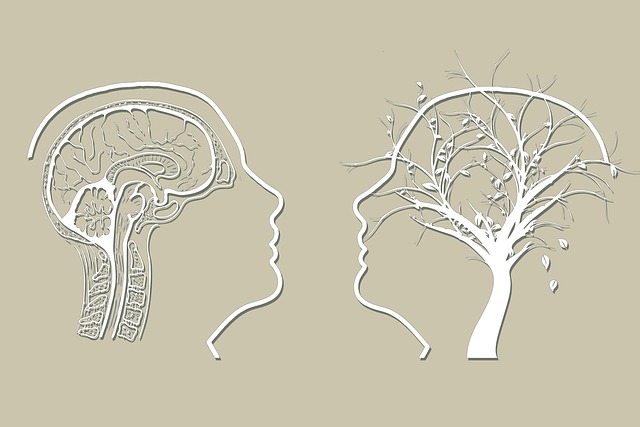In moments of severe emotional turmoil or mental health crisis, dedicated hotlines offer life-preserving support through confidential spaces where trained professionals guide individuals experiencing anxiety, depression, suicidal ideation, or trauma. These services emphasize self-care and safe interventions, including Lakewood Somatic Experiencing Therapy techniques for trauma recovery. Accessing these hotlines requires recognizing crisis signs and sharing personal details with empathetic professionals. Services range from immediate support to therapy referrals and workshops, breaking stigma to encourage open conversations about mental health and enhance community well-being.
In times of mental health crisis, a simple phone call can be a lifeline. Understanding Mental Health Crisis Hotlines explores the vital role these services play in providing immediate support and guidance. This article delves into the effectiveness of Lakewood Somatic Experiencing Therapy (SE) as a complementary approach to hotline assistance. We also offer a practical guide on accessing these services and discuss the growing impact of crisis hotlines, while addressing stigma head-on. By arming individuals with knowledge, we can ensure better support for those in need.
- Understanding Mental Health Crisis Hotlines: A Lifeline in Times of Distress
- The Role of Lakewood Somatic Experiencing Therapy in Crisis Support
- Accessing and Utilizing Hotline Services: A Step-by-Step Guide
- Breaking Stigma: The Impact and Future of Crisis Hotline Support
Understanding Mental Health Crisis Hotlines: A Lifeline in Times of Distress

In times of intense emotional distress or a mental health crisis, accessing immediate support can be life-saving. Mental Health Crisis Hotlines serve as a vital lifeline, offering a safe and confidential space for individuals to connect with trained professionals who can provide guidance and assistance. These hotlines are designed to help people navigate through acute periods of suffering, whether they’re experiencing anxiety, depression, suicidal thoughts, or any other mental health emergency.
Empathy Building Strategies play a crucial role in these interactions. Trained counselors use techniques that foster understanding and connection, allowing individuals to feel heard and validated. Additionally, professionals often emphasize the importance of Self-Care Practices for both the caller and the support provider, ensuring sustainable well-being. Risk Management Planning for Mental Health Professionals is also integrated into hotline operations to ensure safe interventions and aftercare, especially when managing high-risk situations or transferring care to other services.
The Role of Lakewood Somatic Experiencing Therapy in Crisis Support

Lakewood Somatic Experiencing Therapy (SE) plays a pivotal role in crisis support services, offering a unique and highly effective approach to mental health care. This therapeutic method focuses on resolving trauma and stress through mindful bodily awareness, helping individuals regain a sense of safety and balance. By integrating mind and body, SE empowers people to process and release trapped emotions and memories, fostering a profound sense of calm and resilience.
In moments of crisis, when traditional support systems may fall short, the practical application of SE becomes evident. It provides a safe space for individuals to explore their physical sensations and emotional responses without judgment, enabling them to build mental wellness and boost confidence in managing future challenges. Mindfulness meditation techniques are intricately woven into this process, allowing clients to cultivate present-moment awareness and develop coping strategies that promote long-term mental health stability.
Accessing and Utilizing Hotline Services: A Step-by-Step Guide

Accessing hotline support services for mental health crises can seem daunting, but with a few simple steps, individuals can connect with the help they need. The process typically begins with recognizing the signs and symptoms of an impending crisis, such as intense anxiety, depression, or feelings of hopelessness. Once identified, the next step is to locate and dial the appropriate hotline number. For specific needs like trauma recovery, one can reach out to organizations specializing in these areas—in Lakewood, for instance, Somatic Experiencing Therapy offers a unique approach to healing through body-oriented therapy.
When contacting a hotline, be prepared to share personal information with trained professionals who will provide immediate support and guidance. They may ask about your current situation, feelings, and any previous experiences relevant to the crisis. These interactions are designed to build empathy and trust, ensuring you feel heard and understood. Hotline services often include resources for self-care, referrals to local therapy or support groups, and even options for community outreach program implementations that can further assist individuals in managing stress and anxiety over time. Additionally, some organizations conduct Stress Management Workshops to empower individuals with effective coping strategies.
Breaking Stigma: The Impact and Future of Crisis Hotline Support

Breaking stigma is a pivotal aspect of crisis hotline support services’ evolution. These hotlines have long been a safety net for individuals grappling with mental health crises, offering immediate assistance and a confidential space to share their struggles. However, in recent years, there’s been a growing focus on destigmatizing mental illness, which has significant implications for these lifeline services. By fostering open conversations about emotional challenges, crisis hotline support encourages individuals to seek help without fear of judgment.
This shift aligns perfectly with the principles of Inner Strength Development and Mental Wellness Journaling Exercise Guidance promoted by organizations like Lakewood Somatic Experiencing Therapy. Through reduced stigma, hotlines can attract a broader range of users, ensuring that those facing various mental health issues feel empowered to reach out. Moreover, as society continues to prioritize Mental Illness Stigma Reduction Efforts, crisis hotline support services play a crucial role in normalizing conversations about mental wellness, ultimately enhancing the overall well-being of communities they serve.
Mental health crisis hotline support services play a pivotal role in providing immediate assistance and long-term solutions. As highlighted by the article, these hotlines not only serve as a critical resource during times of distress but also contribute to breaking down the stigma associated with seeking mental health help. Incorporating Lakewood Somatic Experiencing Therapy (LSET) into crisis support further enhances the effectiveness of these services, offering holistic healing and sustainable recovery paths. By following accessible step-by-step guides and staying informed about available resources, individuals can navigate crisis situations with improved resilience and a clearer path toward well-being.











